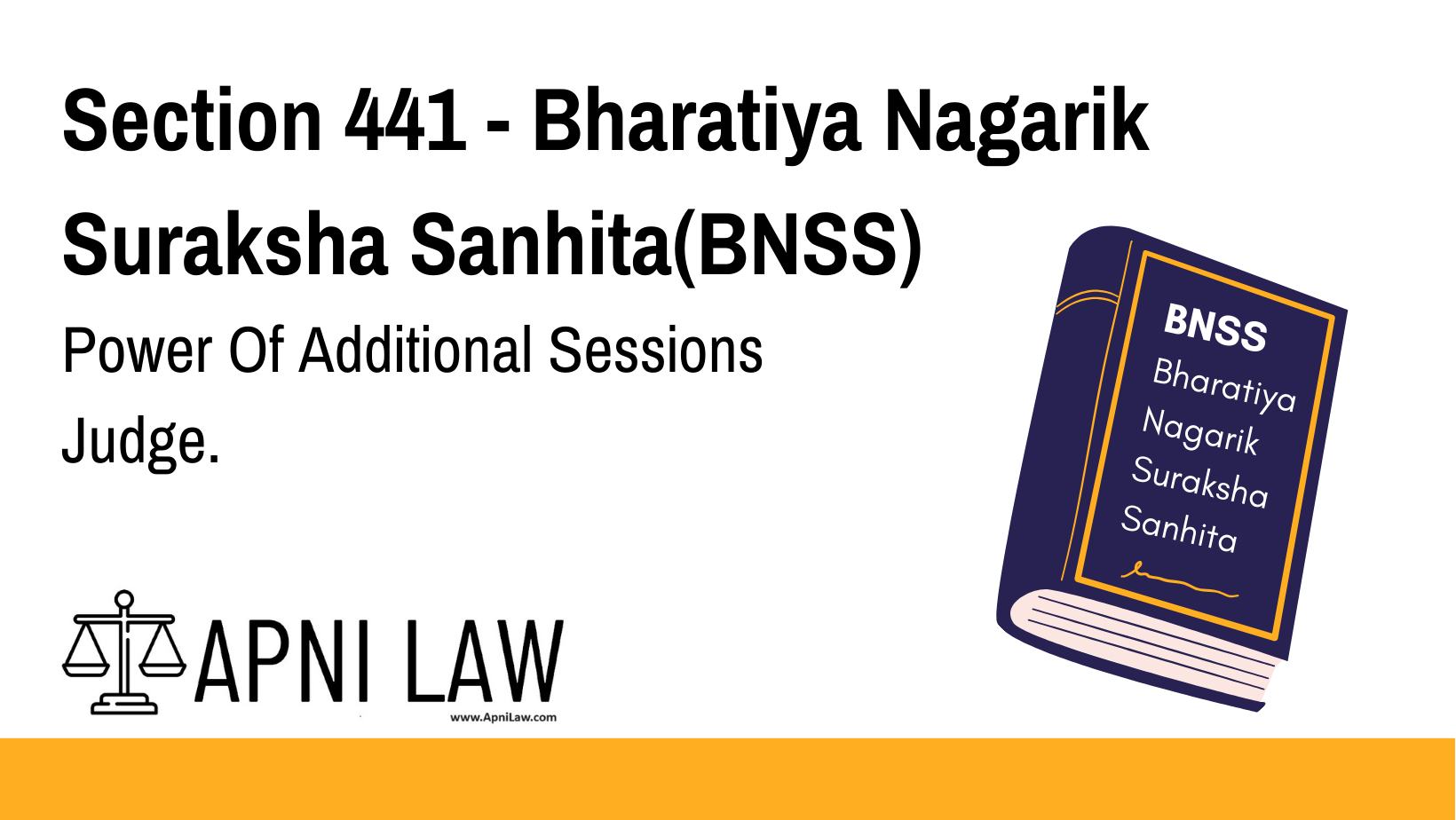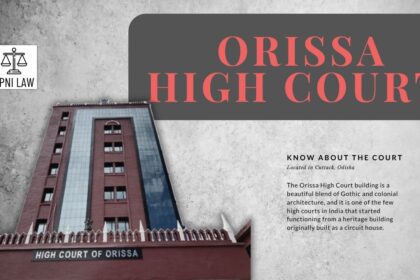Code: Section 441 BNSS
An Additional Sessions Judge shall have and may exercise all the powers of a Sessions Judge under this Chapter in respect of any case which may be transferred to him by or under any general or special order of the Sessions Judge.
Explanation of Section 441 BNSS
Section 441 of the Bharatiya Nagarik Suraksha Sanhita, 2023 (BNSS) grants Additional Sessions Judges the same powers as Sessions Judges for cases transferred to them. This ensures judicial efficiency by allowing Additional Sessions Judges to handle cases without unnecessary procedural delays.
Key Provisions
- Equal Authority to Sessions Judge
- An Additional Sessions Judge has all the powers of a Sessions Judge for cases assigned to them.
- Transfer of Cases
- Cases can be transferred to an Additional Sessions Judge by a Sessions Judge through:
- A general order (applicable to multiple cases).
- A special order (applicable to a specific case).
- Cases can be transferred to an Additional Sessions Judge by a Sessions Judge through:
- Efficiency in Criminal Justice
- This provision allows better case management, reducing the burden on Sessions Judges and ensuring faster trials.
Illustration
Example 1: Transfer of a Criminal Case
A Sessions Judge is overloaded with cases and transfers a murder trial to an Additional Sessions Judge.
- The Additional Sessions Judge exercises the same powers as a Sessions Judge in conducting the trial.
Example 2: Special Order for Case Transfer
A complex fraud case is assigned to an Additional Sessions Judge via a special order.
- The Additional Sessions Judge hears the case and delivers a verdict, just as a Sessions Judge would.
Common Questions and Answers on Section 441 BNSS
1. Does an Additional Sessions Judge have the same authority as a Sessions Judge?
Yes. Under Section 441 BNSS, an Additional Sessions Judge can exercise all powers of a Sessions Judge for transferred cases.
2. Can an Additional Sessions Judge take up any case on their own?
No. An Additional Sessions Judge can only hear cases assigned to them by a Sessions Judge through a general or special order.
3. Can a Sessions Judge revoke a case transferred to an Additional Sessions Judge?
Yes. A Sessions Judge has the authority to withdraw or reassign cases when necessary.
4. What happens if a case is wrongly assigned to an Additional Sessions Judge?
If a case is transferred incorrectly, it can be reassigned to the Sessions Judge or any other competent judicial officer.
5. Does Section 441 BNSS apply to all criminal cases?
Yes. It applies to all criminal cases under the jurisdiction of a Sessions Court.
Conclusion
Section 441 BNSS ensures judicial efficiency by allowing Additional Sessions Judges to exercise full powers in cases assigned to them. This provision helps in reducing the burden on Sessions Judges and ensures timely disposal of cases.
For more legal insights, visit ApniLaw! 🚀








